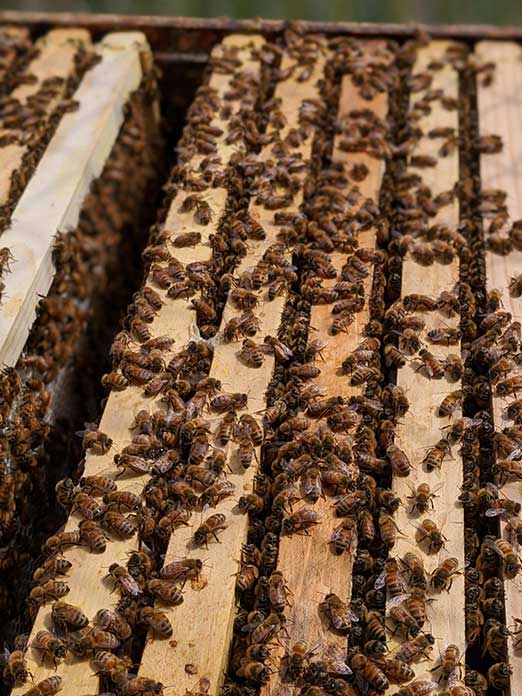The City of Dorval has installed beehives at two municipal buildings to help ensure the survival of these essential pollinators. Bonus: honey in the autumn.
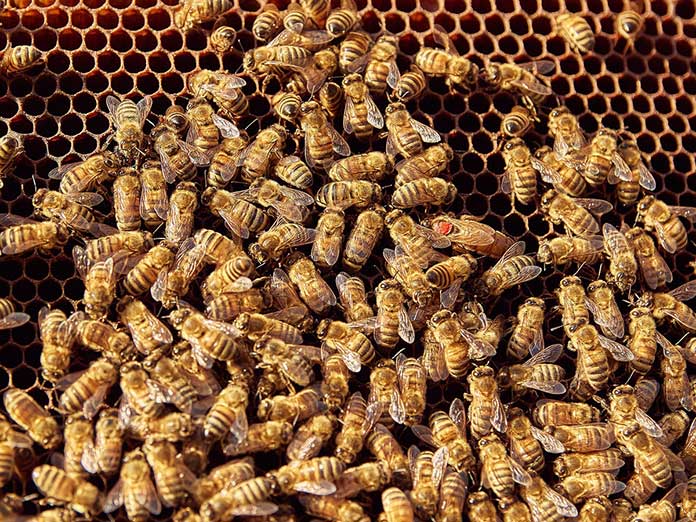
For the past 15 years, honeybee numbers have been declining globally. In an effort to promote thriving bee colonies, the City of Dorval has positioned hives at two of its municipal buildings.
Using the expertise of Alvéole, a Montreal-based urban bee-keeping company, the city now has beehives beside the Westwood Sports Centre and on the roof of the municipal library. There are currently 120,000 bees in the four hives, says David Lebrasseur, the city’s leisure and community-development animator. The locations were chosen, he says, for their proximity to bio-diverse areas. Westwood—where the hives are fenced off—is adjacent to the city’s community gardens, while the library is in an arboretum planted with 250 varieties of trees.
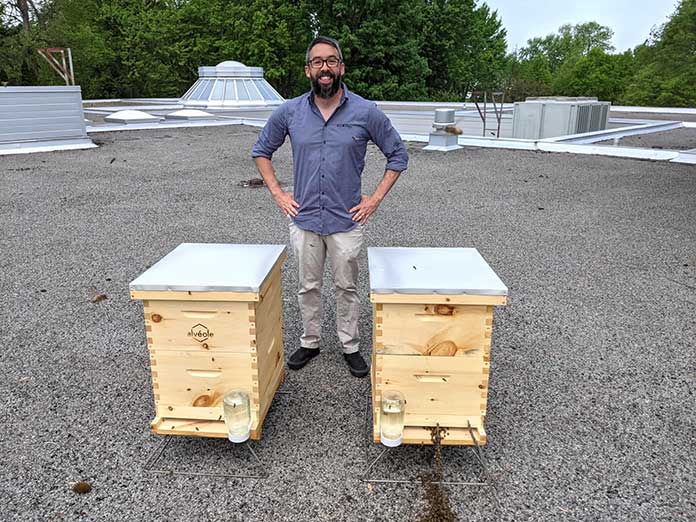
The project is also designed to be educational, to demonstrate how essential bees are to the health of the planet. “Bees have a bad reputation because of wasps,” Mr. Lebrasseur says. “Wasps are omnivores and they do want to eat your hamburger. So, although they are also pollinators, they can be a little more aggressive and in your face and plate. Bees, on the other hand, don’t want to sting you. If they do, they die. As pollinators, bees are essential to human survival. Without pollinators, we die.”
Twice yearly, he says, the city offers educational workshops. “We open the hives to show people the bees. If we’re lucky, we get to see the queen bees.”
In addition to pollinating plants in the immediate vicinities of the hives, he says, Dorval’s bees can travel as far as five kilometres in search of plant nectar. So it’s essential to garden organically, Mr. Lebrasseur says. “I also encourage people not to cut the first bloom of dandelions in the spring. Dandelions are the first things to show in the spring after the bees have been living off their reserves all winter. They need those dandelions to feed on. By June, it’s okay to cut the grass but that first bloom is the most critical one for bees.”
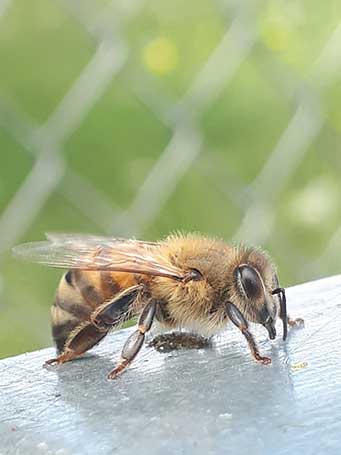
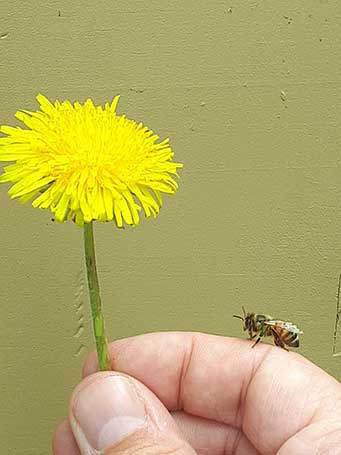
Alvéole, which began in Montreal in 2013 and now creates urban bee colonies across North America and in France, harvests the Dorval hives’ honey in the autumn, which is sold to residents at the community centres and library. “Every year, the honey looks and tastes slightly different,” Mr. Lebrasseur says. “It’s so popular that it sells out in two days.”
It’s a sweet gift from our hard-working pollinator friends who need our help.
For more information: www.ville.dorval.qc.ca/en/environment/page/bees
